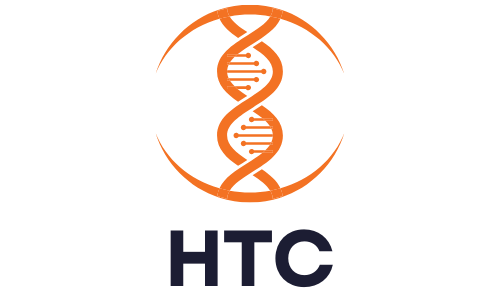HealthTech Innovations in Women's Health
Women’s health encompasses a broad range of issues unique to women’s physiology and life stages. From reproductive health to maternal care, women face specific challenges that require specialized attention. Historically, these needs have been underserved or addressed with one-size-fits-all solutions that fail to account for the nuanced needs of women. The advent of HealthTech offers a transformative potential to address these gaps, providing innovative solutions that enhance care, improve outcomes, and elevate the quality of life for women. This blog aims to explore the landscape of HealthTech innovations in women’s health, highlighting key technologies, their impacts, and future directions.
Key Health Issues Affecting Women
Women's health is multifaceted, covering areas such as reproductive health, maternal health, menopause, and gynecological conditions. Reproductive health issues include menstrual disorders, infertility, and contraceptive management. Maternal health encompasses prenatal and postnatal care, addressing both the physical and mental well-being of mothers. Additionally, women face unique risks for certain chronic diseases, such as breast cancer, osteoporosis, and autoimmune disorders.
Statistics and Trends
According to the World Health Organization (WHO), complications related to pregnancy and childbirth are leading causes of death among women of reproductive age globally. Conditions like endometriosis and polycystic ovary syndrome (PCOS) affect millions of women worldwide, often leading to chronic pain and infertility. Despite these significant health burdens, research and healthcare tailored specifically to women’s needs have historically been underfunded and underrepresented.
Traditional Approaches and Their Limitations
Traditional healthcare approaches for women often involve generic treatments and episodic care that fail to address the root causes of issues. For example, conventional treatments for menstrual disorders may only alleviate symptoms without addressing underlying hormonal imbalances. Similarly, access to quality maternal care can be limited by geographical, financial, and socio-cultural barriers, leading to disparities in health outcomes.
HealthTech Solutions for Women's Health
Overview of Key Innovations
HealthTech innovations are revolutionizing women's health through telemedicine, wearables, artificial intelligence (AI), and digital health platforms. These technologies offer more personalized, efficient, and accessible care solutions. Telemedicine enables remote consultations, making healthcare more accessible to women in underserved areas. Wearables and mobile health apps provide continuous monitoring and personalized health insights. AI-driven analytics offer predictive and preventive care, identifying health risks before they become critical.
Examples of Technologies Improving Women’s Health
Telemedicine platforms such as Maven and Nurx provide accessible reproductive and maternal health services. Wearable devices like Ava and Tempdrop offer fertility tracking and menstrual cycle insights. AI-powered platforms like Flo and Clue use predictive analytics to enhance women's health monitoring and management.
Case Studies of Successful HealthTech Solutions
Maven Clinic: Maven provides a digital health platform offering virtual care for women and families. It includes services like fertility, pregnancy, postpartum care, and pediatrics, making healthcare accessible from anywhere. Maven's approach has improved maternal health outcomes by offering continuous support and personalized care plans.
Clue: Clue is a period and ovulation tracking app that uses data science to predict menstrual cycles and fertility windows. It empowers women with knowledge about their bodies, helping them make informed health decisions. Clue's user-friendly interface and data-driven insights have garnered a large user base, demonstrating the effectiveness of digital health tools in women’s health.
Reproductive Health Technologies
Reproductive health technologies encompass a range of innovations from fertility tracking to advanced contraceptive methods. These technologies aim to provide women with better control over their reproductive health, enhancing both convenience and accuracy.
Examples of Innovative Reproductive Health Solutions
Fertility Tracking: Devices like the Oura Ring and apps like Natural Cycles offer advanced fertility tracking by monitoring physiological markers such as basal body temperature and hormone levels.
Contraceptive Technology: Innovations like the birth control app Phexxi and long-acting reversible contraceptives (LARCs) such as hormonal IUDs provide women with more options and control over their reproductive choices.
Impact on Women's Health and Quality of Life
Innovative reproductive health technologies have significantly impacted women’s lives by providing reliable methods for tracking fertility and managing contraception. These technologies reduce the uncertainty and anxiety associated with reproductive health, empowering women with precise information and greater autonomy over their bodies.
HealthTech Innovations in Women's Health: A Focus on Notable Labs
Notable Labs is revolutionizing healthcare through its predictive precision medicine platform, which is crucial for advancing women's health. By leveraging advanced genetic and molecular analyses, Notable Labs develops personalized treatment plans tailored to individual patients, enhancing the efficacy and safety of interventions. Their technology allows for early detection and targeted treatment of various health conditions, including those specific to women. This approach not only improves patient outcomes but also optimizes healthcare resources, making high-quality, personalized care more accessible and effective. For more information, visit Notable Labs.
Maternal and Child Health Technologies
The Role of HealthTech in Maternal and Child Health
Maternal and child health is a critical area where HealthTech can make substantial contributions. Technologies in this space focus on prenatal care, remote monitoring, and postnatal support to ensure the well-being of both mother and child.
Examples of Innovative Maternal and Child Health Solutions
Prenatal Care: Apps like BabyCenter and WebMD Pregnancy offer comprehensive prenatal care guides, tracking tools, and educational resources for expecting mothers.
Remote Monitoring: Wearables like Bloomlife monitor contractions and fetal health, providing real-time data to healthcare providers and mothers.
Postnatal Support: Platforms like LactApp provide lactation consulting and support for new mothers, addressing breastfeeding challenges and promoting infant health.
Impact on Maternal and Child Health Outcomes
HealthTech innovations in maternal and child health have led to improved prenatal and postnatal care, reduced complications, and better health outcomes for both mothers and infants. Remote monitoring and telehealth services ensure continuous care and support, even in remote or underserved areas, significantly reducing the risk of maternal and infant mortality.
Personalized and Preventive Care for Women
The Shift Towards Personalized Care
HealthTech is driving a shift towards personalized healthcare, where treatments and interventions are tailored to individual patient profiles. This approach considers genetic, environmental, and lifestyle factors to provide more effective and personalized care.
Predictive Analytics and Preventive Measures
Predictive analytics and preventive measures enabled by technology play a crucial role in early disease detection and intervention. AI and machine learning algorithms analyze vast amounts of health data to predict risks and suggest preventive actions.
Case Studies of Personalized Interventions
Myriad Genetics: Myriad offers genetic testing for hereditary cancer risk assessment, helping women understand their risk for breast and ovarian cancers. This personalized approach allows for early intervention and preventive measures.
Color Genomics: Color provides genetic testing and counseling for various health conditions, including cardiovascular diseases and cancer. Their personalized reports guide individuals in making informed health decisions and taking preventive actions.
Challenges and Risks
Potential Challenges and Risks
Adopting HealthTech for women's health comes with challenges and risks, including technical, regulatory, and ethical issues. Ensuring data security and privacy is critical, given the sensitive nature of health information. Additionally, the rapid pace of technological advancement can create gaps in regulation and compliance.
Regulatory and Compliance Hurdles
Navigating the regulatory landscape for HealthTech innovations can be complex. Companies must comply with various regulations, such as the Health Insurance Portability and Accountability Act (HIPAA) in the U.S., which mandates the protection of patient data. Achieving regulatory approval for new technologies requires rigorous testing and validation.
Strategies for Overcoming Challenges
To overcome these challenges, companies must invest in robust data security measures, engage with regulatory bodies early in the development process, and ensure transparency and ethical standards in their operations. Collaboration with healthcare providers, policymakers, and patients is also essential to address regulatory and compliance issues effectively.
Investment Opportunities in Women's Health
Promising HealthTech Companies and Technologies
The women's health market presents numerous investment opportunities in innovative HealthTech companies and technologies. Key areas include digital health platforms, wearable devices, and AI-driven diagnostics.
Factors to Consider When Investing
Investors should consider factors such as the technology's potential for scalability, the company's competitive edge, regulatory compliance, and the alignment of the technology with unmet needs in women's health. Evaluating the management team's expertise and track record is also crucial.
Long-Term vs. Short-Term Investment Strategies
While some HealthTech solutions may offer quick returns, long-term investment strategies focusing on sustainable growth and innovation are likely to yield higher returns. Investing in companies with a strong pipeline of products and a commitment to advancing women's health through continuous research and development can provide substantial long-term benefits.
Conclusion
HealthTech innovations are revolutionizing women's health by providing personalized, efficient, and accessible solutions. Technologies such as telemedicine, wearables, AI, and digital health platforms are transforming reproductive health, maternal and child health, and preventive care.The potential of HealthTech to improve women's health outcomes is immense. By addressing the unique health needs of women and leveraging advanced technologies, we can ensure better health and quality of life for women worldwide. Stakeholders, including investors, healthcare providers, and policymakers, should support and invest in innovative HealthTech solutions for women's health. By fostering an environment of innovation and collaboration, we can advance the field of women's health and create a brighter future for women everywhere.










